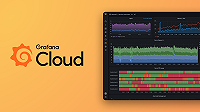loki.source.kubernetes
loki.source.kubernetes tails logs from Kubernetes containers using the Kubernetes API.
Note
This component collects logs from Kubernetes Pods. You can’t use this component to collect logs from Kubernetes Nodes.
This component has the following benefits over loki.source.file:
- It works without a privileged container.
- It works without a root user.
- It works without needing access to the filesystem of the Kubernetes node.
- It doesn’t require a DaemonSet to collect logs, so one Alloy could collect logs for the whole cluster.
Note
Because
loki.source.kubernetesuses the Kubernetes API to tail logs, it uses more network traffic and CPU consumption of Kubelets thanloki.source.file.
You can specify multiple loki.source.kubernetes components by giving them different labels.
Usage
loki.source.kubernetes "<LABEL>" {
targets = <TARGET_LIST>
forward_to = <RECEIVER_LIST>
}Arguments
The component starts a new reader for each of the given targets and fans out log entries to the list of receivers passed in forward_to.
You can use the following arguments with loki.source.kubernetes:
Each target in targets must have the following labels:
__meta_kubernetes_namespaceor__pod_namespace__to specify the namespace of the Pod to tail.__meta_kubernetes_pod_container_nameor__pod_container_name__to specify the container within the Pod to tail.__meta_kubernetes_pod_nameor__pod_name__to specify the name of the Pod to tail.__meta_kubernetes_pod_uidor__pod_uid__to specify the UID of the Pod to tail.
By default, all of these labels are present when the output discovery.kubernetes is used.
A log tailer is started for each unique target in targets.
Log tailers reconnect with exponential backoff to Kubernetes if the log stream returns before the container has permanently terminated.
Blocks
You can use the following blocks with loki.source.kubernetes:
The > symbol indicates deeper levels of nesting.
For example, client > basic_auth refers to a basic_auth block defined inside a client block.
client
The client block configures the Kubernetes client used to tail logs from containers.
If the client block isn’t provided, the default in-cluster configuration with the service account of the running Alloy Pod is used.
The following arguments are supported:
At most, one of the following can be provided:
authorizationblockbasic_authblockbearer_token_fileargumentbearer_tokenargumentoauth2block
no_proxy can contain IPs, CIDR notations, and domain names. IP and domain names can contain port numbers.
proxy_url must be configured if no_proxy is configured.
proxy_from_environment uses the environment variables HTTP_PROXY, HTTPS_PROXY, and NO_PROXY (or the lowercase versions thereof).
Requests use the proxy from the environment variable matching their scheme, unless excluded by NO_PROXY.
proxy_url and no_proxy must not be configured if proxy_from_environment is configured.
proxy_connect_header should only be configured if proxy_url or proxy_from_environment are configured.
authorization
credential and credentials_file are mutually exclusive, and only one can be provided inside an authorization block.
Warning
Using
credentials_filecauses the file to be read on every outgoing request. Use thelocal.filecomponent with thecredentialsattribute instead to avoid unnecessary reads.
basic_auth
password and password_file are mutually exclusive, and only one can be provided inside a basic_auth block.
Warning
Using
password_filecauses the file to be read on every outgoing request. Use thelocal.filecomponent with thepasswordattribute instead to avoid unnecessary reads.
oauth2
client_secret and client_secret_file are mutually exclusive, and only one can be provided inside an oauth2 block.
Warning
Using
client_secret_filecauses the file to be read on every outgoing request. Use thelocal.filecomponent with theclient_secretattribute instead to avoid unnecessary reads.
The oauth2 block may also contain a separate tls_config sub-block.
no_proxy can contain IPs, CIDR notations, and domain names. IP and domain names can contain port numbers.
proxy_url must be configured if no_proxy is configured.
proxy_from_environment uses the environment variables HTTP_PROXY, HTTPS_PROXY, and NO_PROXY (or the lowercase versions thereof).
Requests use the proxy from the environment variable matching their scheme, unless excluded by NO_PROXY.
proxy_url and no_proxy must not be configured if proxy_from_environment is configured.
proxy_connect_header should only be configured if proxy_url or proxy_from_environment are configured.
tls_config
The following pairs of arguments are mutually exclusive and can’t both be set simultaneously:
ca_pemandca_filecert_pemandcert_filekey_pemandkey_file
When configuring client authentication, both the client certificate (using cert_pem or cert_file) and the client key (using key_pem or key_file) must be provided.
When min_version isn’t provided, the minimum acceptable TLS version is inherited from Go’s default minimum version, TLS 1.2.
If min_version is provided, it must be set to one of the following strings:
"TLS10"(TLS 1.0)"TLS11"(TLS 1.1)"TLS12"(TLS 1.2)"TLS13"(TLS 1.3)
clustering
When Alloy is using clustering, and enabled is set to true, then this loki.source.kubernetes component instance opts-in to participating in the cluster to distribute the load of log collection between all cluster nodes.
If Alloy is not running in clustered mode, then the block is a no-op and loki.source.kubernetes collects logs from every target it receives in its arguments.
Clustering looks only at the following labels for determining the shard key:
__meta_kubernetes_namespace__meta_kubernetes_pod_container_name__meta_kubernetes_pod_name__meta_kubernetes_pod_uid__pod_container_name____pod_name____pod_namespace____pod_uid__containerjobnamespacepod
Exported fields
loki.source.kubernetes doesn’t export any fields.
Component health
loki.source.kubernetes is only reported as unhealthy if given an invalid configuration.
Debug information
loki.source.kubernetes exposes some target-level debug information per target:
- The labels associated with the target.
- The full set of labels which were found during service discovery.
- The most recent time a log line was read and forwarded to the next components in the pipeline.
- The most recent error from tailing, if any.
Debug metrics
loki.source.kubernetes doesn’t expose any component-specific debug metrics.
Example
This example collects logs from all Kubernetes Pods and forwards them to a loki.write component so they’re written to Loki.
discovery.kubernetes "pods" {
role = "pod"
}
loki.source.kubernetes "pods" {
targets = discovery.kubernetes.pods.targets
forward_to = [loki.write.local.receiver]
}
loki.write "local" {
endpoint {
url = sys.env("<LOKI_URL>")
}
}Compatible components
loki.source.kubernetes can accept arguments from the following components:
- Components that export Targets
- Components that export Loki
LogsReceiver
Note
Connecting some components may not be sensible or components may require further configuration to make the connection work correctly. Refer to the linked documentation for more details.




